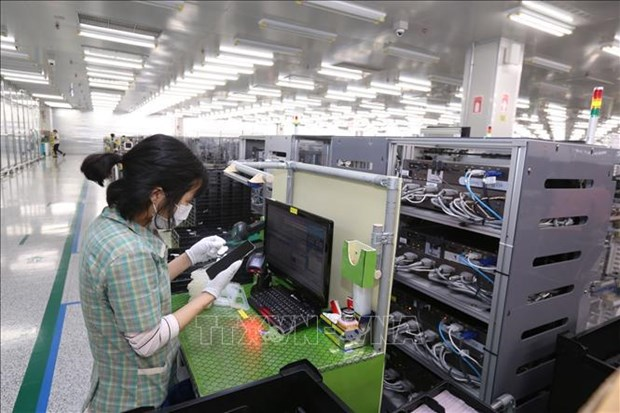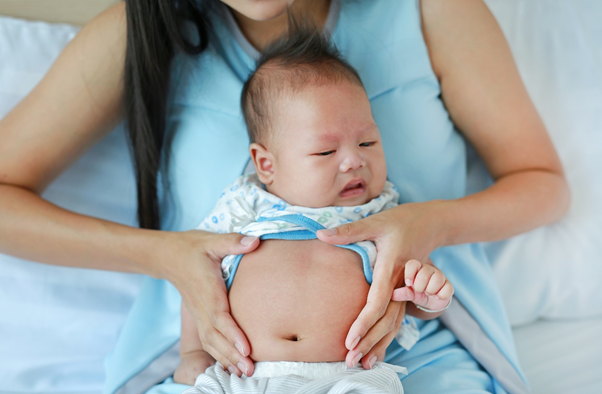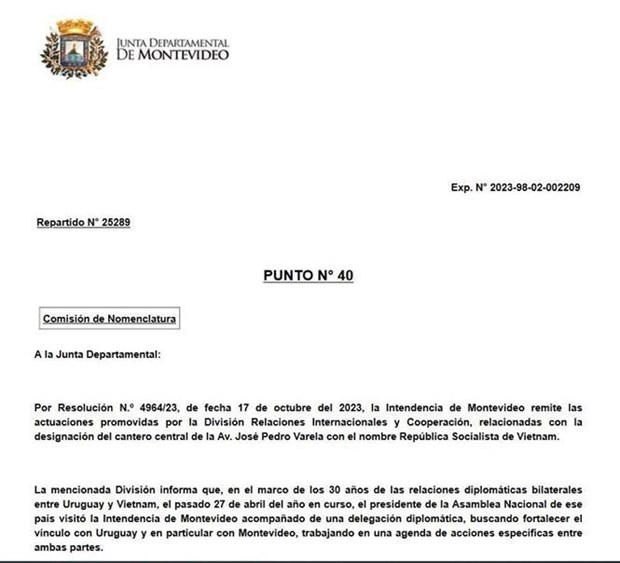 Life & Style
Life & Style

Dr Mattias Larsson*
Nghĩa is an energetic and lively 11-month boy who has recently learned to stand up. He was born at full term with a birth weight of 3.3kg, without any complications and is experiencing normal growth.
The last three days he had a cough, a runny nose and an increased temperature under 38°C. His parents took him to a local doctor who diagnosed throat infection and otitis media, he was prescribed an antibiotic, Augmentin. After another two days he developed watery stools, refused eating and drinking and had episodes of vomiting, pale skin and inconsolable crying that his mother interpreted as stomach ache.
His mother’s alarm bells were really triggered when Nghĩa had a stool mixed with blood and mucus, appearing as currant jelly. She had heard that Family Medical Practice was an international clinic with fast and easy access, so she took Nghĩa there.

|
| Intussusception predominantly affects boys aged 6 months to 3 years. Photo shutterstock.com |
Nghĩa was initially quiet when the paediatrician examined him. He had rapid pulse with regular rhythm, low blood pressure, rapid breathing, slightly decreased blood oxygen level, pale marbled skin and he felt cold although a fever of 38.5°C. His belly was tender, slightly bloated and had quiet bowel sounds. During the examination, Nghĩa started crying, sweating, then threw up and looked extremely tired. This indicated that Nghĩa was at risk of going into shock, where the body’s cells and organs don’t receive enough oxygen and nutrients due to insufficient blood flow. This can lead to damage and is considered a life-threatening emergency. The pediatrician ordered intravenous fluid, pain-relieving treatment, and some tests. As Nghĩa's condition stabilised, the blood test results showed normal electrolytes and glucose levels, while white blood cells and CRP (c-reactive protein) were slightly elevated, which indicates an infection or inflammation.
An ultrasound showed intestinal intussusception. The paediatrician explained to the mother that intussusception is a serious condition in which a section of the intestine, which is shaped like a long tube, slides into an adjacent part of the intestine, similar to the way a collapsible telescope slides together. This causes an obstruction that blocks food and fluid from passing through the intestines and may cut off the blood supply to the part of the intestines. In severe cases this may also lead to organ damage, intestinal perforation, necrosis (tissue death) and peritonitis (an inflammation of the tissue that covers your abdominal organs).
The exact cause of Intussusception remains unknown. The most common age range affected is between six months and three years and occurs more frequently in boys. Many children experiencing intussusception also exhibit flu-like symptoms. Some researchers suspect that viral and gastrointestinal infections as well as changes in the intestinal flora due to antibiotic use may play a role.
For treatment the pediatrician used therapeutic enema, inserting a soft tube in the rectum through which air or contrast material (as iodine or barium) is introduced into the large intestine to straighten out the intussusception. After the treatment Nghĩa was calm and fell asleep, a new ultrasound confirmed that the intussusception was reversed.
The paediatrician said it was good that they came in early after Nghĩa had blood in the stool, because waiting longer might have complicated the treatment. About 10 per cent of intussusceptions need surgery. After some days there was no more blood in the stool and Nghĩa ate well. He had also recovered from the respiratory symptoms, leaving his mother relieved and satisfied. Family Medical Practice

|
| Dr Mattias Larsson. Photo courtesy of Family Medical Practice |
*Dr Mattias Larsson is a paediatric doctor at Family Medical Practice and associate professor at Karolinska Institutet and has a long experience in research on infectious diseases. He has worked with the Oxford University Clinical Research Unit and the Ministry of Health of Việt Nam. He is fluent in English, Swedish, Vietnamese, German and some Spanish.
Visit Family Medical Practice Hanoi 24/7 at 298I Kim Mã Str, Kim Mã Ward, Ba Đình District.
To book an appointment, please call us at (024).3843.0784 or via Whatsapp, Viber or Zalo on +84.944.43.1919 or email hanoi@vietnammedicalpractice.com.
FMP’s downtown location in Hồ Chí Minh is in Diamond Plaza, 34 Lê Duẩn Str, Bến Nghé, District 1, and 95 Thảo Điền Str, District 2. Tel. (028) 3822 7848 or email hcmc@vietnammedicalpractice.com.









